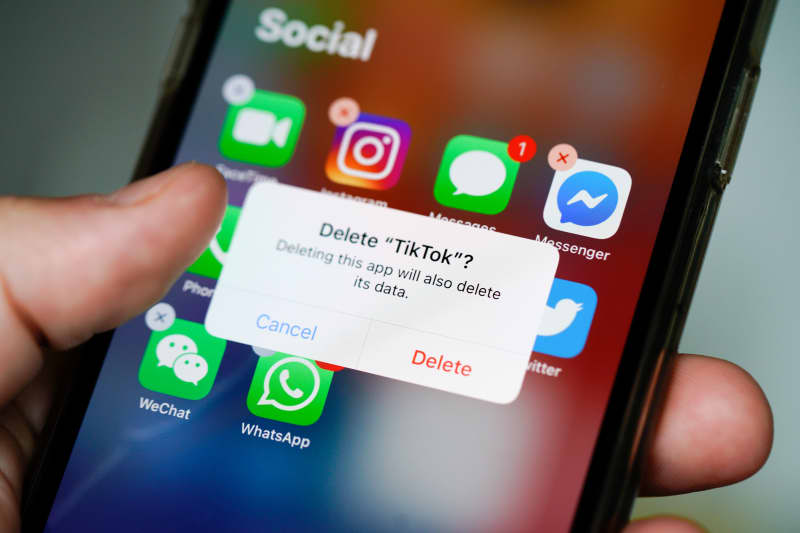
The new copyright law has been wringing its hands for a long time. The new law is now finally coming into effect, but not everyone is happy with it.
Now it looks good, said Teosto already last week on his Twitter account about the passage of the new copyright law in the culture committee.
The copyright law, which has been twisted for years, has finally been approved by the parliament. There has been a tough fight for the new law in Finland, and because of that, the processing of the law was delayed by a year and a half.
In 2019, the European Union approved changes to the copyright directive and obliged member countries to implement the reform into their national legislation within two years. Finland was already threatened with a fine in the case when the law did not progress.
The previous extensive reform of the Copyright Act was carried out in Finland 20 years ago.
Domestic copyright organizations, such as Teosto, are campaigning in favor of the new law that has now been adopted.
From the consumer’s point of view, not much has changed
From Teosto’s point of view, the most important part of the whole is article 17, which concerns online content sharing services. Of the five services most used for listening to music in Finland, i.e. YouTube, Tiktok, Facebook, Instagram and Spotify, only Spotify had a clear legal obligation to obtain permission from the rights holders to share music before the change in the law.
– It’s about the content shared by these services and the responsibility associated with it, which has been unclear in the past. Youtube, Tiktok, Facebook and Instagram are now in the same situation as Spotify, that is, they equally need permission from the rights holder to distribute the content. This is a significant change, states Antti Härmänmaa.

According to Härmänmaa, nothing much changes from the consumer’s point of view.
– If you have previously uploaded protected music to YouTube, it has ultimately been unclear who is responsible for copyright issues. In the future, the situation is clear: when the service provider obtains permission to distribute content, it also covers the user’s actions.
Härmänmaa assures that users’ means of legal protection in relation to services will increase and improve with the new law.
– The services will have clear operational responsibilities. The consumer now has the legal right to have the matter re-evaluated by the service if the content downloaded by the consumer is deleted.
Memes and parody are not in the firing line
The new copyright law bundles together three side-by-side issues related to basic rights: property protection of authors and artists, freedom of speech and consumer rights, and freedom of business for service providers.
This balance has been sought for a long time, and recently there was a heated debate regarding, for example, parody and memes: does the new law seek to limit forms of expression that belong to civilized society.
– No one has ever wanted to limit memes, this has been recognized from the beginning. When the European Union officially announced the new directive, it specifically emphasized that users’ ability to publish memes is guaranteed, says Antti Härmänmaa.
Other countries did better than Finland
– There were simply too many problems in relation to the available time.
According to Mylly, the urgency was due to the problems in the proposal preparation process in the ministry, the upcoming parliamentary elections and the violation procedure already started by the EU Commission against Finland, when the directive had not been enacted into law on time.
Each EU country has had its own interpretation of the underlying EU directive. Mylly points out that, for example, Germany and Austria have succeeded better than Finland in terms of the precision and strictness of regulation, as well as in implementing freedom of speech and the interests of users.
– Finland’s copyright law follows the circular and internally contradictory norms of the EU directive, especially with regard to liability regulation for online content sharing services, by rewriting them and imagining that they would somehow function as a national law.

The problem with the new law is freedom of speech
According to Mylli, freedom of speech will be at the center of the new law: when it is restricted, the regulation should be extremely clear, but now it has remained general.
Service providers such as YouTube and TikTok are required by law to filter copyrighted materials effectively, on the one hand, so that copyright infringements do not occur, but in such a way that users’ rights and freedom of speech are not affected.
Tuomas Mylly points out that the machine cannot distinguish legal citations or parody versions from illegal content. This leads to a significant problem that ultimately comes at the expense of users’ rights and freedom of speech.
– Now the regulation is done with filtering algorithms of social media and online services. Service providers may overblock the material provided by users, because currently or in the near future there are no technologies that could distinguish legal from illegal content.
– It’s about a naive and pious belief in technology, in which we trust that an artificial intelligence algorithm would be able to act as a copyright judge in the future. On this point, the legislation has failed.
Mylly adds that the legislation also left problems with regard to the regulation of education, as well as unnecessary uncertainty, for example, in the regulation of TV broadcasting rights.
The 2021 proposal became scrap paper
According to Tuomas Mylly, it is entirely possible that in the future material such as a political election video will be removed from the platforms invoking copyright or will not be allowed on them at all, if the video accidentally includes, for example, music protected by copyright.
– In the background of the video, there may be a short clip of \”illegal\” music coming from a passing car, which is detected and blocked by social media or online platform algorithms.
Mylly points out that in the fall of 2021, the preliminary draft of the government’s proposal was significantly more detailed and extended than the current law, and that it contained more different legal protection guarantees. However, the copyright organizations were very critical of the draft and also got a large number of individual artists involved.
– Teosto and other copyright organizations were very successful in their lobbying. In the beginning, the Ministry of Education and Culture had a progressive law preparation, but it was managed to become waste paper. So hats off to the copyright organizations, they have succeeded in defending their interests.
This is how copyright law was discussed during the EU hearing:
